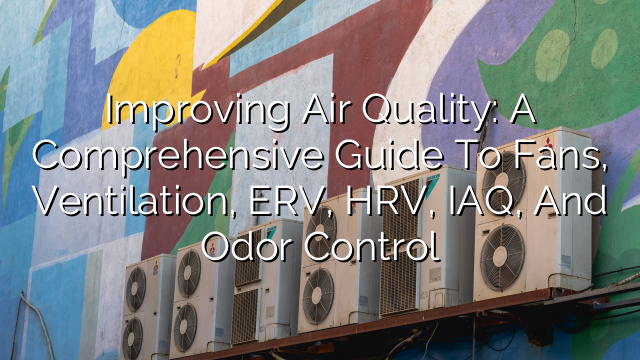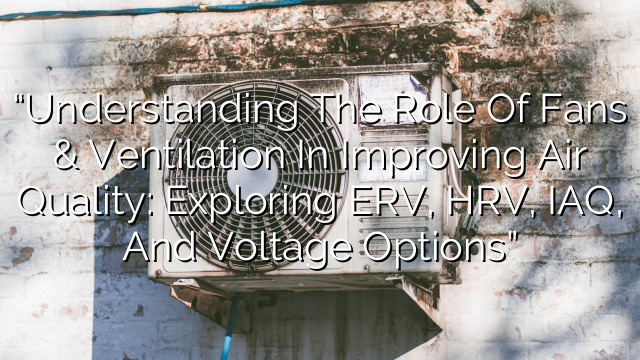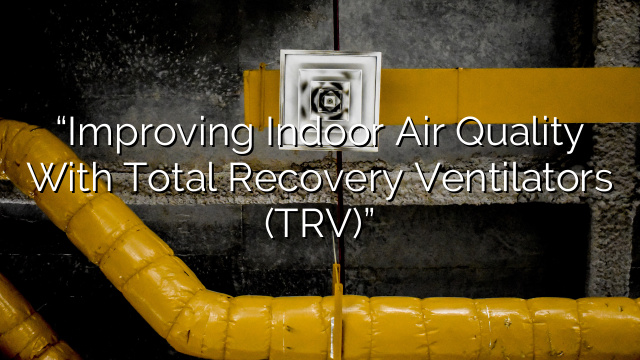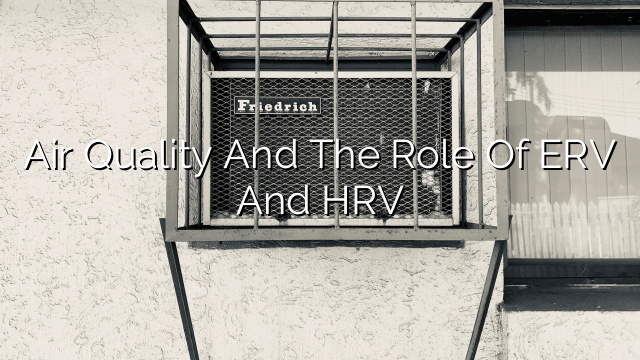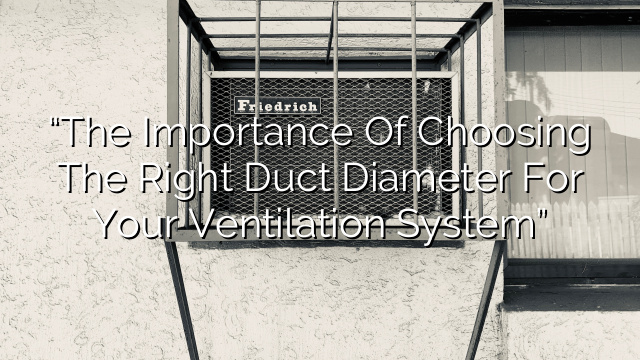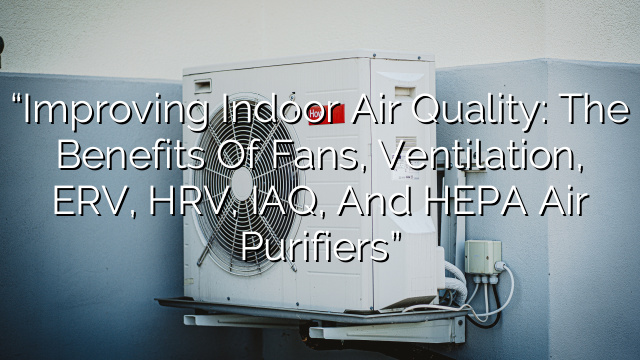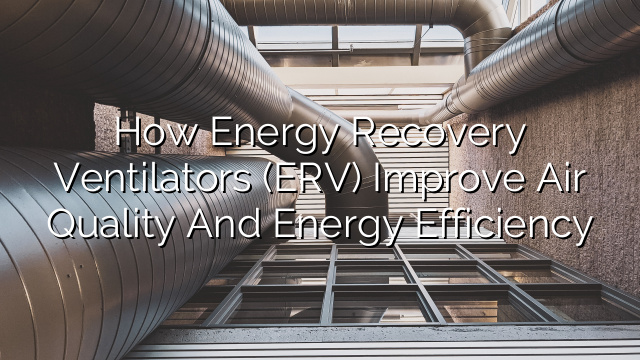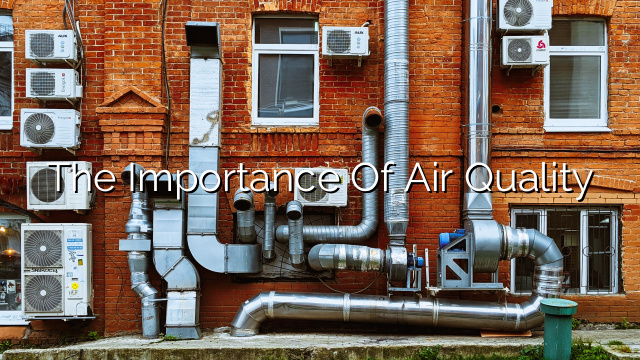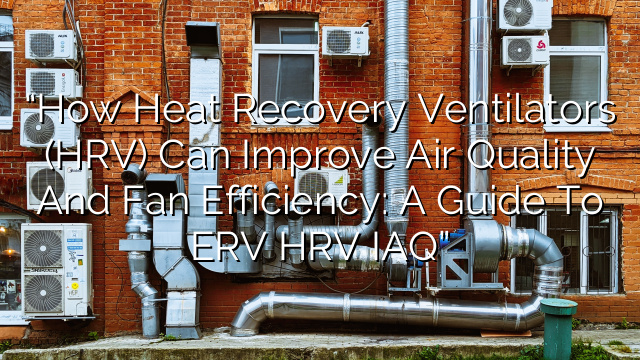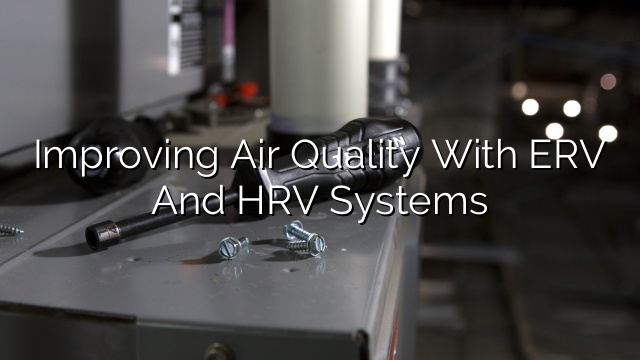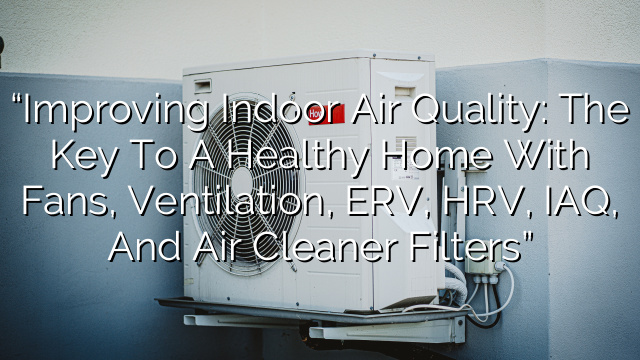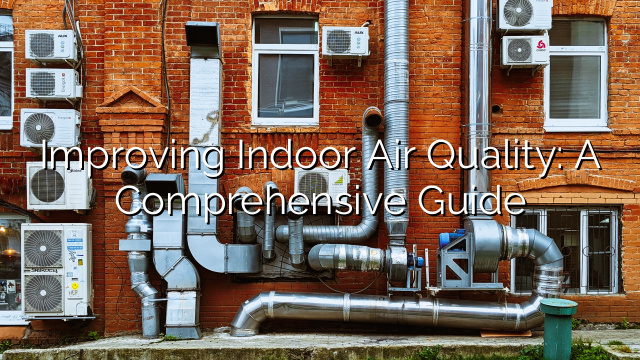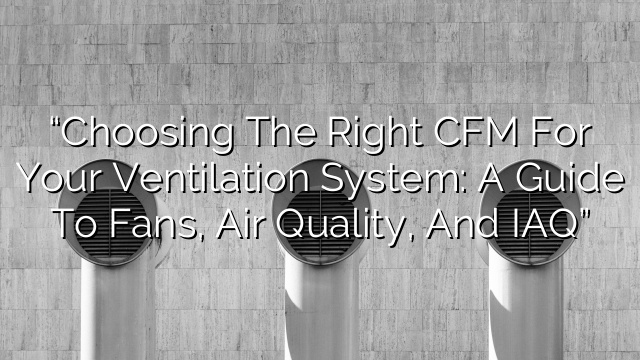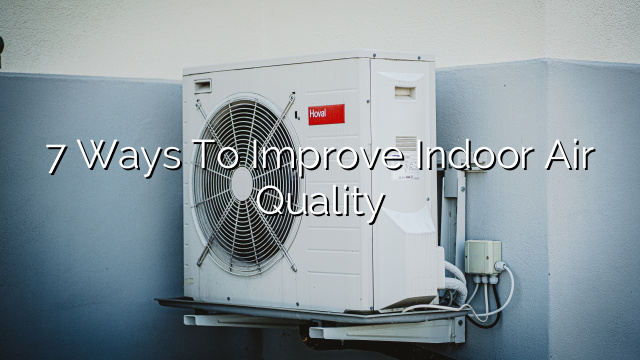Fans & Ventilation: Improving Air Quality
Good air quality is essential for a healthy and comfortable living environment. One way to achieve this is through effective ventilation. In this comprehensive guide, we will explore the importance of fans, ventilation systems such as ERV and HRV, IAQ (Indoor Air Quality), and odor control.
The Importance of Fans
Fans play a crucial role in improving air quality by circulating the air in a space. They help to remove stagnant air, distribute fresh air, and maintain a comfortable temperature. There are different types of fans to cater to various needs, including ceiling fans, wall-mounted fans, and portable fans.
When choosing a fan, consider factors such as the size of the room, the noise level, and energy efficiency. Opt for fans with adjustable speed settings to have better control over the airflow.
Ventilation Systems: ERV and HRV
While fans can improve air circulation, they are not sufficient for achieving optimal air quality alone. This is where ventilation systems like ERV (Energy Recovery Ventilation) and HRV (Heat Recovery Ventilation) come into play.
ERV and HRV systems are designed to remove stale air from within a building while simultaneously bringing in fresh outdoor air. These systems also recover and transfer energy from the exhaust air to the incoming fresh air, making them energy-efficient options for improving indoor air quality.
ERV systems are particularly effective in improving IAQ by reducing the levels of pollutants, allergens, and excess humidity in the air. They achieve this through the exchange of heat and moisture in the airflow, resulting in a comfortable and healthy indoor environment.
Indoor Air Quality (IAQ)
Indoor Air Quality (IAQ) refers to the cleanliness and healthiness of the air inside a building. Poor IAQ can lead to various health problems, including respiratory issues, allergies, and even chronic illnesses. To improve IAQ, it is important to address the sources of pollutants and implement appropriate ventilation and air filtration systems.
Good ventilation is crucial for maintaining a healthy IAQ. It helps to remove indoor pollutants, such as volatile organic compounds (VOCs), mold spores, and allergens. Adequate ventilation also helps control moisture levels, preventing the growth of mold and mildew.
In addition to ventilation, air filtration systems, such as HEPA (High-Efficiency Particulate Air) filters, can help remove fine particles and contaminants from the air. Regular cleaning and maintenance of these filters are essential to ensure their effectiveness.
Odor Control
Unpleasant odors in a living or working space can greatly affect comfort and overall well-being. Proper ventilation plays a significant role in controlling and eliminating odors. By improving the air circulation, fans and ventilation systems help to remove stagnant air and replace it with fresh outdoor air, reducing the concentration of odor-causing particles.
In addition to ventilation, there are various odor control products available in the market, such as air fresheners and odor neutralizers. However, it is important to choose non-toxic and eco-friendly options to avoid introducing harmful chemicals into the indoor environment.
FAQs
- How often should I clean or replace my fan?
The frequency of cleaning or replacing your fan depends on factors such as usage, environment, and the type of fan. Refer to the manufacturer’s instructions for specific guidelines. In general, regular dusting and cleaning of fan blades are recommended to avoid the buildup of dust and allergens.
- Can I install an ERV or HRV system in my existing home?
Yes, it is possible to install an ERV or HRV system in an existing home. However, it is recommended to consult with a professional HVAC technician to assess your home’s specific requirements and ensure proper installation.
- How often should I replace the filters in my ventilation system?
The frequency of filter replacement depends on the type of filter and the manufacturer’s recommendations. Some filters need replacement every three months, while others may last up to a year. Regularly check the filters and replace them when they appear dirty or clogged.

